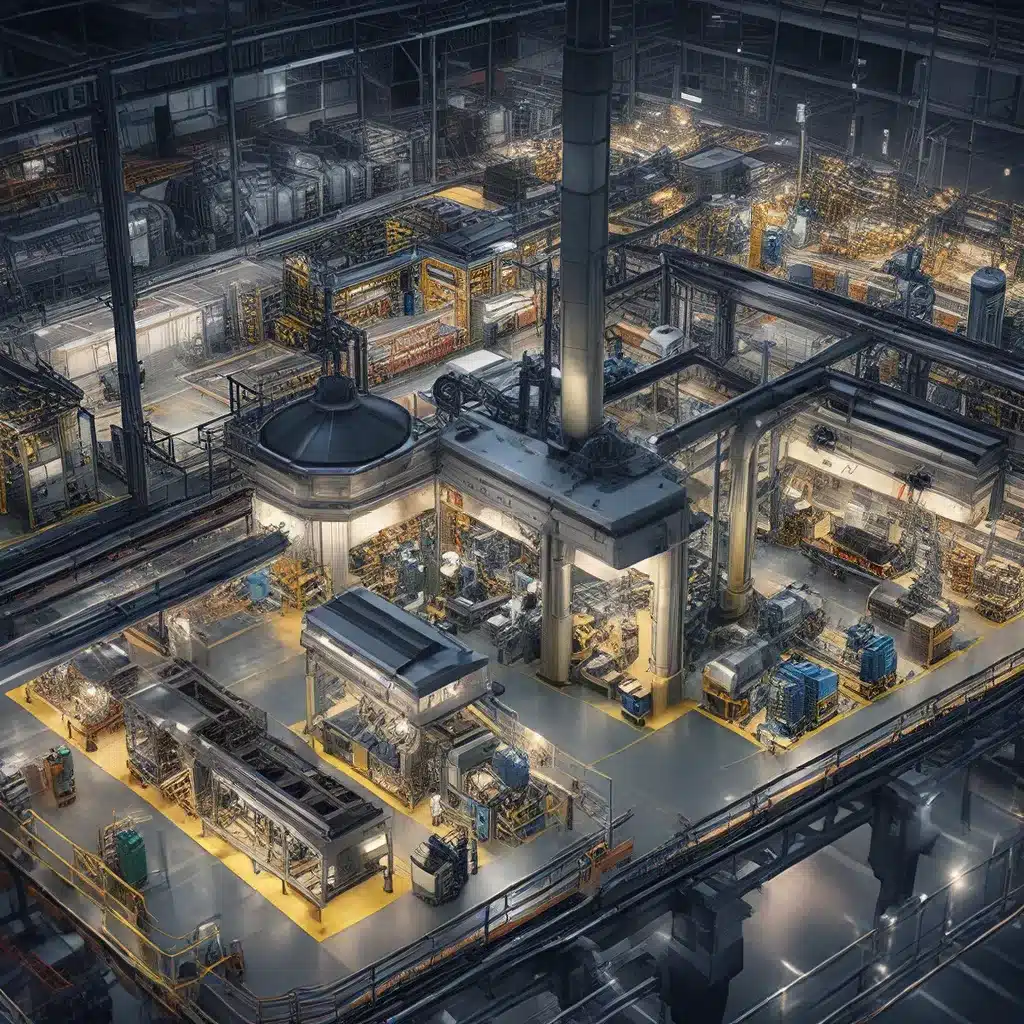
The Rise of Industry 4.0 and Smart Manufacturing
The manufacturing industry is undergoing a profound transformation, driven by the integration of cutting-edge technologies such as the Internet of Things (IoT), cloud computing, artificial intelligence (AI), and machine learning. This new era, often referred to as Industry 4.0 or smart manufacturing, is ushering in a level of efficiency, flexibility, and responsiveness that was previously unimaginable.
At the heart of this revolution are sensor networks that are transforming the way factories operate. These networks of interconnected IoT devices are collecting and analyzing data from across the production facility, providing real-time visibility and insights that enable manufacturers to make informed decisions and optimize their processes. Industry 4.0 is characterized by the integration of these digital technologies, allowing for greater automation, predictive maintenance, and mass customization.
The Promise of Sensor-Powered Smart Factories
By leveraging sensor networks and IoT technology, smart factories are able to achieve a level of information transparency and data-driven decision making that was previously unattainable. Sensors embedded throughout the production environment collect a wealth of data, which is then combined with enterprise-wide operational data from sources like ERP, supply chain, and customer service systems. This holistic view of the manufacturing process enables better insights, increased productivity, and improved quality control.
One of the key benefits of smart factories is the ability to achieve mass customization. By using advanced simulation software, new materials, and technologies like 3D printing, manufacturers can now cost-effectively produce small batches of specialized products to meet individual customer needs. This shift from mass production to mass customization is a hallmark of the Industry 4.0 revolution.
Moreover, sensor-powered smart factories are able to predict and prevent equipment failures through the use of predictive maintenance techniques. Machine learning algorithms analyze data from IoT-connected sensors to identify patterns and anomalies, allowing for proactive maintenance and minimizing unplanned downtime.
Cybersecurity Considerations in Smart Factories
As manufacturing operations become increasingly interconnected and reliant on digital technologies, the importance of cybersecurity cannot be overstated. The same connectivity and data sharing that enables the benefits of smart factories also exposes new entry points for potential cyber threats.
Manufacturers undergoing a digital transformation to Industry 4.0 must consider a comprehensive cybersecurity approach that encompasses both information technology (IT) and operational technology (OT) systems. Securing the growing number of IoT-connected devices and cyber-physical systems on the factory floor is crucial to preventing malicious attacks and malware that could disrupt production or compromise sensitive data.
Adopting best practices for network segmentation, access control, encryption, and endpoint security can help manufacturers mitigate the risks associated with their digitally-enabled smart factories. Additionally, ongoing monitoring and incident response planning are essential to ensuring the resilience of these interconnected systems.
The Role of Edge Computing and Cloud Integration
The real-time nature of manufacturing operations means that some data analysis and decision-making must occur at the edge, where the data is generated. This edge computing approach helps to minimize latency and ensure immediate action in response to critical events, such as safety or quality issues.
At the same time, cloud computing is a cornerstone of any Industry 4.0 strategy, providing the scalability and cost-effectiveness needed to store, process, and analyze the large volumes of data generated by smart factories. By integrating edge and cloud computing, manufacturers can unlock the full potential of their sensor networks and IoT-enabled assets, leveraging both real-time responsiveness and enterprise-wide data insights**.
Digital Twins and Supply Chain Optimization
The digital transformation of manufacturing has also given rise to the concept of digital twins – virtual replicas of physical processes, production lines, factories, and supply chains. These digital models, powered by data from IoT sensors and interconnected machinery, allow manufacturers to simulate changes, test new processes, and identify opportunities for improvement without disrupting actual production.
Moreover, the integration of supply chain data with factory-level operations is a crucial aspect of Industry 4.0 strategies. By sharing production data with suppliers, manufacturers can better coordinate deliveries, minimize waste, and improve the overall efficiency of their supply chain. Emerging technologies like blockchain are also enabling greater transparency and traceability in these interconnected supply networks.
Unlocking the Full Potential of Enterprise Assets
Enterprise asset management (EAM) is essential for maximizing the uptime and performance of the thousands of IoT-connected devices found in a typical smart factory. By leveraging IoT-enabled sensors and devices, manufacturers can remotely monitor their equipment, extend asset lifecycles, and optimize maintenance strategies through predictive analytics and AI-powered insights.
Optimizing the Future of Manufacturing
The sensor-powered smart factory is a transformative vision for the future of manufacturing, one that harnesses the power of data, connectivity, and intelligence to drive unprecedented levels of efficiency, flexibility, and responsiveness.
By embedding sensors and IoT devices throughout the production environment, integrating edge and cloud computing, and leveraging AI and machine learning, manufacturers can unlock new levels of visibility, predictability, and automation across their operations. This digital transformation is enabling mass customization, predictive maintenance, and supply chain optimization – all while addressing the critical need for robust cybersecurity to protect these interconnected systems.
As the manufacturing industry continues to embrace the Industry 4.0 revolution, the sensor-enabled smart factory will undoubtedly play a pivotal role in shaping the future of production, delivering greater value to customers and driving sustainable growth for businesses. Sensor-powered smart factories are the key to optimizing industrial processes and unlocking new levels of productivity in the years to come.